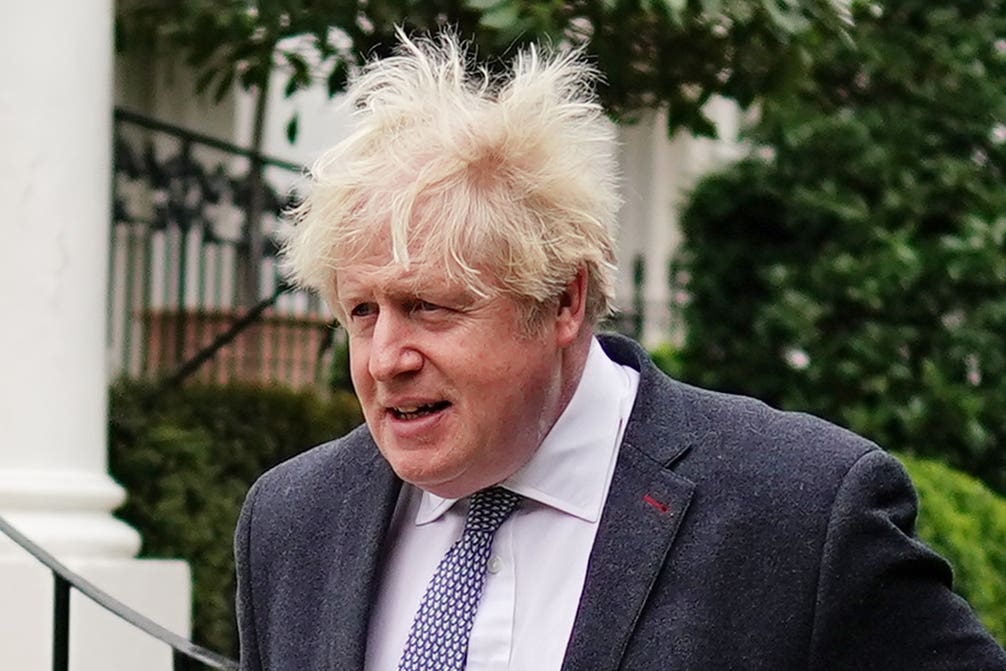An unhappy struggle between panto and principle: the Covid inquiry’s winners and losers so far
The constant flow of expletive-filled revelations from Baroness Hallett’s Covid inquiry has been a shocking reminder of the government’s failings in office during the pandemic, writes Sean O’Grady. Buckle up for more big names wielding the cudgel over the coming months


After a slow start, the UK Covid-19 Inquiry, also known as the Hallett inquiry after its chair, Baroness Heather Hallett, has been producing some sensational content, as we say these days.
The witness statements from, and cross-examination of, Dominic Cummings and Helen MacNamara have grabbed the headlines and damaged the reputations of many of the players in this “drama” – not least Boris Johnson.
The constant flow of revelations has also been – especially for the Conservatives – an unwelcome reminder of their failings in office during this transcendent crisis. While many voters will have long ago made their minds up about the party and its leadership, the inquiry – which would have only been getting into its stride had the general election been held as expected in the summer of 2023 – will intrude into the world of politics next year and beyond...
Is there much more of this?
Much more. The inquiry will not complete taking evidence until 2026, with the final report perhaps out then or in 2027. However, interim findings will be published next year, and quite possibly before the election. The total cost is likely to be around £200m or more, most of it spent on lawyers’ fees. The problem with such lengthy inquiries is that they take so long to report any sense of urgency is lost, and taxpayers tend to resent the expenditure, as with the Bloody Sunday Inquiry. There’s also the uncomfortable truth that inconvenient recommendations get ignored or forgotten, as seems to be partly the case with the Grenfell (still yet to finally report) and Windrush inquiries.
How have other countries been much quicker to conclude their inquiries and learn lessons?
It’s true that countries such as Sweden have completed their investigations (and, contrary to some mythology, found that Sweden’s initial response to the Covid-19 pandemic was partly misguided and slow). However, the more comprehensive British approach isn’t necessarily a bad thing, given the unique shortcomings in the UK government’s response – no other country had anything like Partygate, for example, nor indeed the “trolley” Johnson in charge. Arguably, the Hallett Inquiry shows the strengths of Britain’s independent judiciary.
Who are the “winners” and “losers”?
Few winners, though MacNamara and NHS chief executive Lord Simon Stevens have given calm and measured answers to the questions posed by the leading KCs, Hugo Keith and Andrew O’Connor (who have shown the benefits of sustained rational but probing questioning of the participants. Baroness Hallett has also been an obviously capable chair, and markedly considerate towards the inquiry’s support staff, such as the stenographers.
The biggest loser is pretty clear: Matt Hancock, who no one seems to have a good word for. Asked if he thought Hancock was prone to lying, Stevens paused, pointedly, before stating: “I was brought up to see the best in people”. Were Johnson’s reputation for probity and competence not already shredded he would have suffered most from the testimony of his closest colleagues and one-time allies, such as Cummings and ex-head of communications, Lee Cain. Martin Reynolds, who used to be Johnson’s principal private secretary was fairly unimpressive about why he decided to “disappear” WhatsApp conversations.
Has the inquiry been good for transparency?
Undoubtedly. Hallett and her team have made full use of the powers granted them by parliament and thwarted attempts by the Cabinet Office to suppress or redact embarrassing material. The picture that has emerged of the governance of the UK at the highest level hasn’t been reassuring – an unhappy struggle between a mix of panto and principle in which the foul-mouthed clown squad usually won.
Newer technologies, especially, mean that many “conversations” that might previously have taken place fleetingly and verbally – and unrecorded – are now, potentially, available for public scrutiny; but if they and emails are wiped, deleted or otherwise destroyed then valuable evidence of wrongdoing can disappear with them. There seem to be few rules about preservation of such material, and little scrutiny of the messaging that takes place on private phones and personal email accounts (both against the ministerial code).
Who’s up next?
The schedule of witness appearances next week has two potentially outstanding performances. Mark Sedwill, the former cabinet secretary and head of the civil service sacked by Johnson and Cummings, is due to take the stand for an entire day. As one of the figures at the centre of the crisis he will have to account for the UK’s lack of preparedness and resilience, the apparently dysfunctional workings of the machinery of government, and how the machinations of powerful personalities helped or hindered the response to the pandemic.
Priti Patel, home secretary during the crisis, will also need to take responsibility for the way rules were policed. She may also be asked about the involuntary resignation of the permanent secretary at the Home Office in February 2020. Other witnesses will be: Clare Lombardelli, former economic adviser at the Treasury; Stuart Glassborow, former deputy principal private secretary to the prime minister; Ben Warner, former special adviser at No 10; Simon Ridley, ex-head of the Cabinet Office Covid taskforce; Eddie Lister, who was chief of staff to Johnson; Martin Hewitt, formerly chair of the National Police Chiefs’ Council; Justin Tomlinson, for minster for disabled people; and Jun Pang, ex-campaigns officer at Liberty.
In the coming weeks, the appearances of Johnson, Hancock, Rishi Sunak, Chris Whitty and Patrick Vallance will be eagerly anticipated.






Join our commenting forum
Join thought-provoking conversations, follow other Independent readers and see their replies
Comments